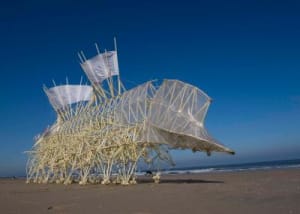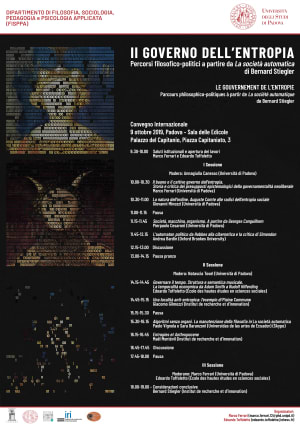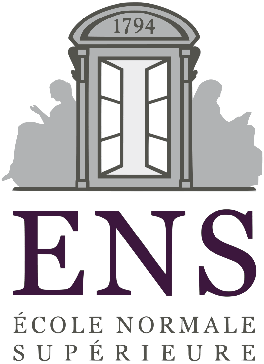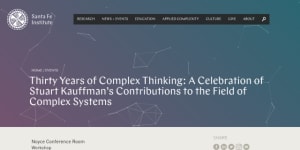
-

-
Espace-temps et individuation
Dans le cadre de la relativité générale, l'espace temps constitue un bloc géométrisé où la temporalité en tant que telle disparaît. Ce cadre est extrêmement éloigné de la biologie où la temporalité possède un rôle central parce que l'historicité biologique est fondamentale. Néanmoins le processus d'individuation organique s'appuie sur la capacité du vivant à être organisateur de son espace-temps. Il s'agit là d'une condition de possibilité de l'individuation dont nous développerons certains aspects remarquables.
-

Technology, art and autonomy
-

Possibility spaces and the notion of novelty: from music to biology
Synthese
What is a biological novelty? Is it possible to coin a sound concept of new possibility? What articulation between the concepts of novelty and function?
Abstract
We provide a new perspective on the relation between the space of description of an object and the appearance of novelties. One of the aims of this perspective is to facilitate the interaction between mathematics and historical sciences. The definition of novelties is paradoxical: if one can define in advance the possibles, then they are not genuinely new. By analyzing the situation in set theory, we show that defining generic (i.e., shared) and specific (i.e., individual) properties of elements of a set are radically different notions. As a result, generic and specific definitions of possibilities cannot be conflated. We argue that genuinely stating possibilities requires that their meaning has to be made explicit. For example, in physics, properties playing theoretical roles are generic; then, generic reasoning is sufficient to define possibilities. By contrast, in music, we argue that specific properties matter, and generic definitions become insufficient. Then, the notion of new possibilities becomes relevant and irreducible. In biology, among other examples, the generic definition of the space of DNA sequences is insufficient to state phenotypic possibilities even if we assume complete genetic determinism. The generic properties of this space are relevant for sequencing or DNA duplication, but they are inadequate to understand phenotypes. We develop a strong concept of biological novelties which justifies the notion of new possibilities and is more robust than the notion of changing description spaces. These biological novelties are not generic outcomes from an initial situation. They are specific and this specificity is associated with biological functions, that is to say, with a specific causal structure. Thus, we think that in contrast with physics, the concept of new possibilities is necessary for biology.
Keywords: Novelty, Possibility space, Biological functions, Organization, Emergence
Manuscript Citation Publisher Full textCitation
Montévil, Maël. 2019. “Possibility Spaces and the Notion of Novelty: From Music to Biology.” Synthese 196 (11): 4555–81. https://doi.org/10.1007/s11229-017-1668-5 -

Comment objectiver les nouveaux possibles en biologie?
-
L’Anthropocène comme désorganisation du vivant
La crise que constitue l'Anthropocène est souvent décrite à travers la raréfaction de ressources. Pourtant un autre aspect de cette crise est tout aussi critique et concerne aussi les humains: la désorganisation des organismes et des écosystèmes. Nous introduirons brièvement cette question et montrerons qu'elle demande des raisonnements spécifiques.
-

Espaces des possibles et nouveauté : de la musique à la biologie
-

L’Anthropocène comme désorganisation du vivant
-

Mesurer le vivant
-
No Entailing Laws but Enablement in the Evolution of the Biosphere




